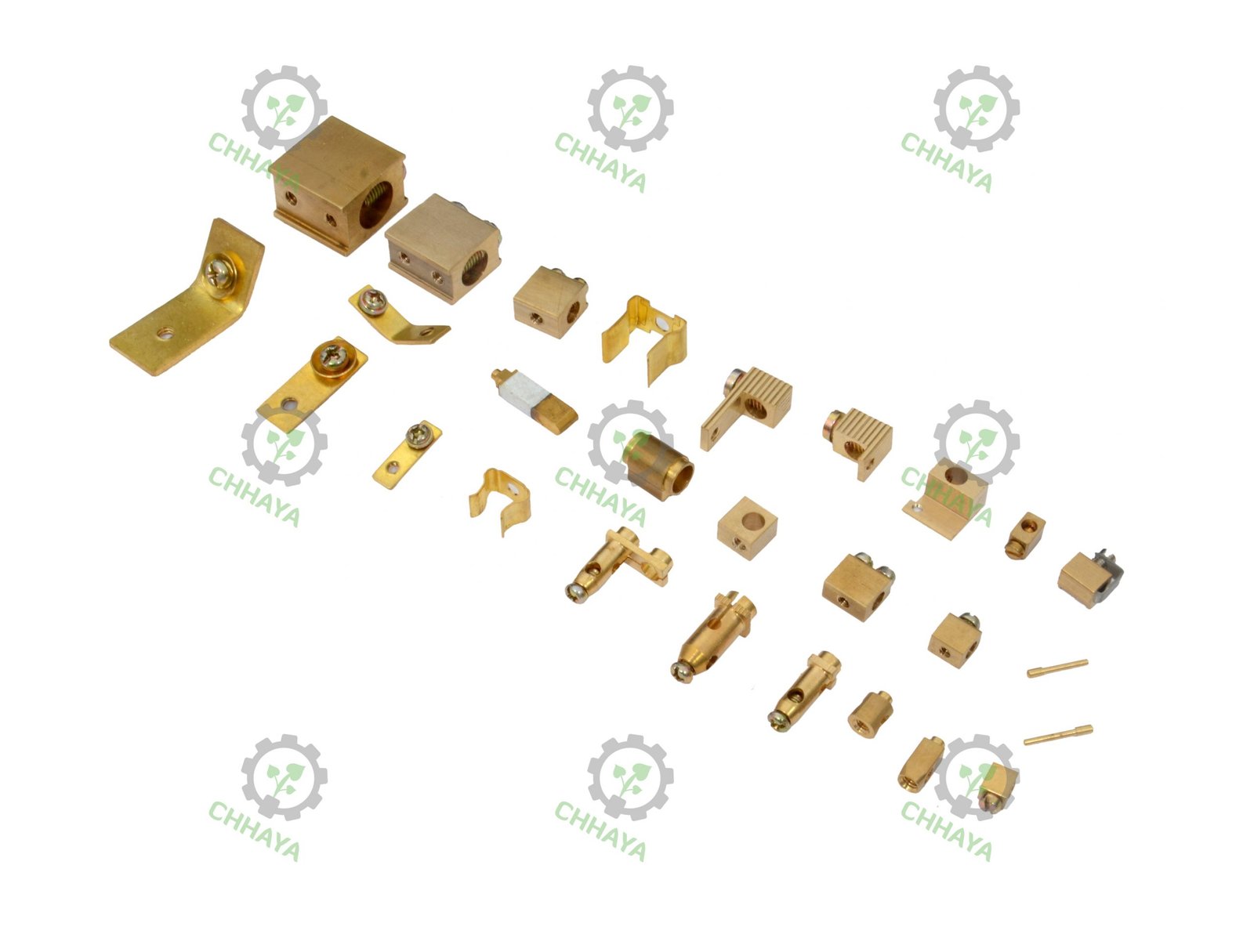
In the realm of electrical engineering, the significance of quality components cannot be overstated. Brass electrical parts have emerged as a preferred choice due to their exceptional conductivity, durability, and corrosion resistance. From switches to connectors, these parts play a crucial role in ensuring seamless electrical connections and optimal performance. In this comprehensive guide, we delve into the world of brass electrical parts, shedding light on their features, applications, and benefits.
In the realm of electrical engineering, the significance of quality components cannot be overstated. Brass electrical parts have emerged as a preferred choice due to their exceptional conductivity, durability, and corrosion resistance. From switches to connectors, these parts play a crucial role in ensuring seamless electrical connections and optimal performance. In this comprehensive guide, we delve into the world of brass electrical parts, shedding light on their features, applications, and benefits.
Understanding Brass Electrical Parts
Brass, a metal alloy composed of copper and zinc, boasts remarkable electrical conductivity properties. This makes it an excellent choice for various electrical components. Brass electrical parts encompass a wide range of items, including:
- Brass Connectors: These facilitate secure connections between electrical conductors, ensuring efficient flow of current.
- Brass Terminals: Found in electrical devices and appliances, terminals provide attachment points for wires.
- Brass Switches: Often used in circuits to control the flow of electricity, brass switches offer reliable operation and longevity.
- Brass Contacts: Crucial for relays and switches, brass contacts ensure low resistance and reliable switching.
- Brass Connectors: These connectors establish robust links between electrical conductors, enabling the efficient flow of current and data. Their conductivity properties minimize energy loss, contributing to enhanced performance.
- Brass Terminals: Terminals serve as attachment points for wires in electrical devices and appliances. Brass terminals offer a reliable and durable connection, ensuring uninterrupted electrical pathways.
- Brass Switches: Brass is a favored material for switches due to its excellent conductivity and mechanical properties. Brass switches guarantee consistent and precise operation, making them ideal for a variety of applications.
- Brass Contacts: In relays and switches, the quality of contacts is paramount. Brass contacts exhibit low resistance and excellent thermal conductivity, ensuring efficient current transfer and minimal heat generation.
Benefits of Brass Electrical Parts
Brass electrical parts offer several advantages that contribute to their popularity in the industry:
- High Conductivity: Brass’s exceptional electrical conductivity ensures minimal energy loss and efficient power transmission.
- Corrosion Resistance: The zinc content in brass provides corrosion resistance, making these parts suitable for various environments.
- Durability: Brass is known for its durability, ensuring longevity and consistent performance.
- Machinability: Brass can be easily shaped and machined, allowing for intricate designs and precise manufacturing.
- High Conductivity: Brass’s remarkable electrical conductivity ensures efficient transmission of electrical signals and power, minimizing energy losses and promoting optimal performance.
- Corrosion Resistance: The inclusion of zinc in brass imparts corrosion resistance, making brass electrical parts suitable for use in diverse environments, including those with high humidity or chemical exposure.
- Durability: Brass is renowned for its durability and resistance to wear and tear. Brass electrical parts maintain their structural integrity over time, ensuring longevity and consistent functionality.
- Machinability: Manufacturers appreciate the machinability of brass, which allows for precise shaping and intricate designs. This property contributes to the production of intricate and efficient electrical components.
Applications of Brass Electrical Parts
The versatility of brass electrical parts lends itself to a wide range of applications:
- Residential Wiring: Brass connectors and terminals are commonly used in household wiring systems, ensuring safe and reliable connections.
- Automotive Electronics: Brass parts find applications in automotive electronics, contributing to efficient vehicle operation.
- Industrial Machinery: Brass electrical components play a vital role in industrial machinery and automation systems.
- Telecommunications: Brass connectors are essential for establishing clear and stable connections in telecommunication networks.
- Residential Wiring: Brass connectors and terminals are commonly employed in residential electrical wiring systems. They ensure secure connections, reducing the risk of disruptions and electrical faults in homes.
- Automotive Electronics: Brass electrical parts play a vital role in automotive electronics, contributing to the functionality of vehicle lighting, ignition systems, and communication devices.
- Industrial Machinery: Industrial equipment and machinery rely on brass components to establish reliable connections and maintain efficient electrical circuits, supporting seamless automation and operation.
- Telecommunications: The telecommunications industry benefits from brass connectors and switches that facilitate clear and stable signal transmission in communication networks.
LSI Keywords: Electrical Connectors, Conductive Alloys, Electrical Components
Choosing the Right Brass Electrical Parts
When selecting brass electrical parts for your projects, consider the following factors:
- Compatibility: Ensure that the selected parts are compatible with your specific electrical system or application.
- Current Capacity: Verify that the chosen components can handle the required current load without overheating.
- Environmental Factors: Assess the environment in which the parts will be used to determine the level of corrosion resistance needed.
Maintaining Brass Electrical Parts
To maximize the lifespan and performance of your brass electrical parts, follow these maintenance tips:
- Regular Cleaning: Periodically clean the parts to remove dust and contaminants that may affect conductivity.
- Avoid Moisture: Keep the parts dry, as moisture can lead to corrosion and reduced performance.
- Inspect for Damage: Routinely inspect the components for signs of wear, damage, or corrosion.
Answering Your FAQs
Are this compatible with other materials?
Brass parts can be used in conjunction with various materials, but ensure compatibility to prevent galvanic corrosion.
Can I use brass parts outdoors?
Yes, brass’s corrosion resistance makes it suitable for outdoor applications, though protective coatings may be advisable.
What industries benefit?
Industries such as construction, automotive, aerospace, and telecommunications rely on brass components.
Are there eco-friendly options for brass electrical parts?
Some manufacturers offer eco-friendly brass alloys with reduced environmental impact.
Can I recycle this parts?
Yes, brass is recyclable, making it an environmentally conscious choice.
Where can I purchase high-quality parts?
Reputable electrical suppliers and distributors offer a wide range of brass components for various applications.
Brass electrical parts stand as a testament to the synergy of design, conductivity, and reliability. These components are the unsung heroes behind seamless electrical connections, ensuring the smooth operation of devices and systems across various industries. By understanding their features, benefits, and applications, you’re better equipped to make informed decisions when incorporating brass electrical parts into your projects. Embrace the power of connectivity and performance with these versatile and durable components.






